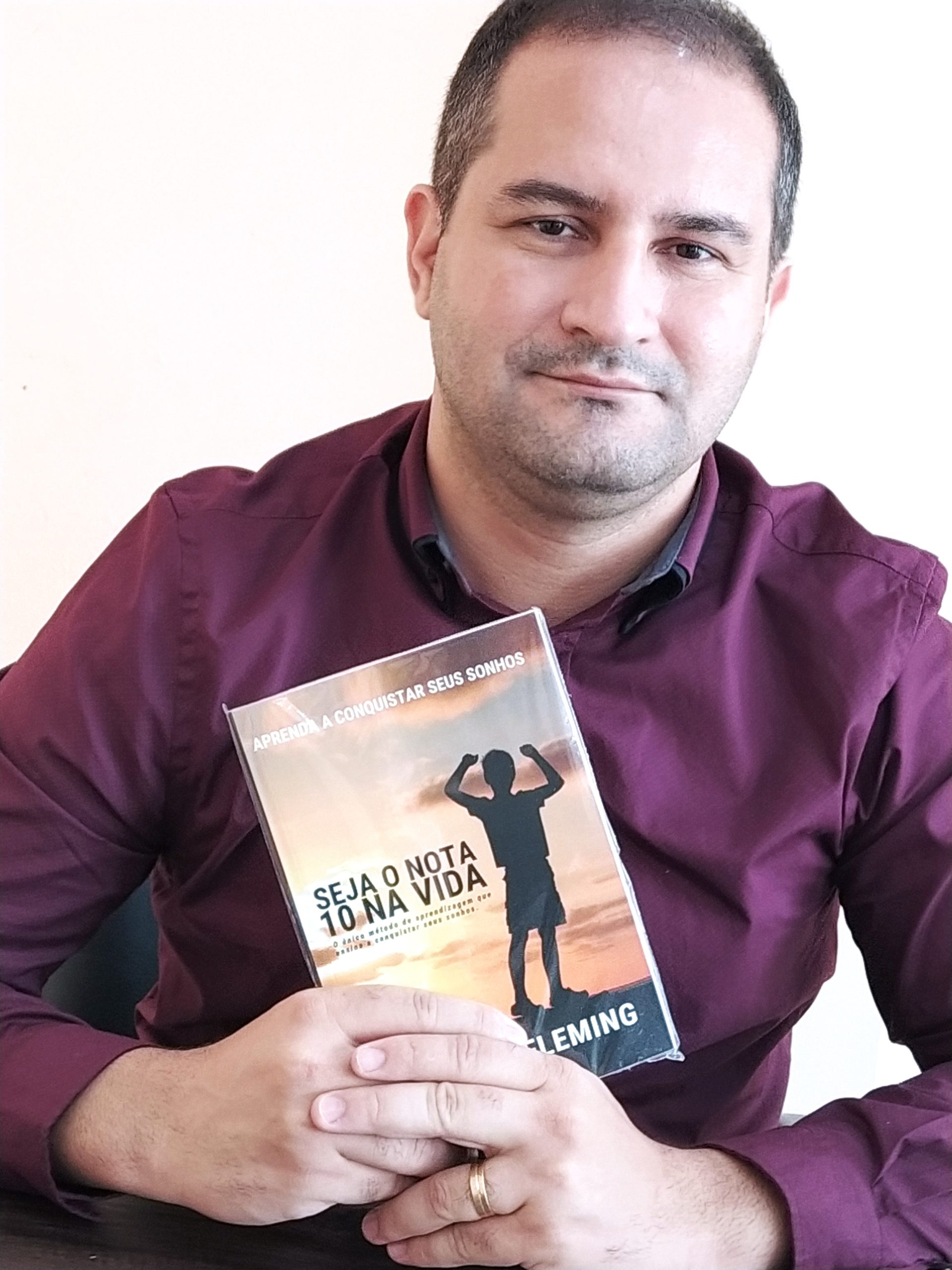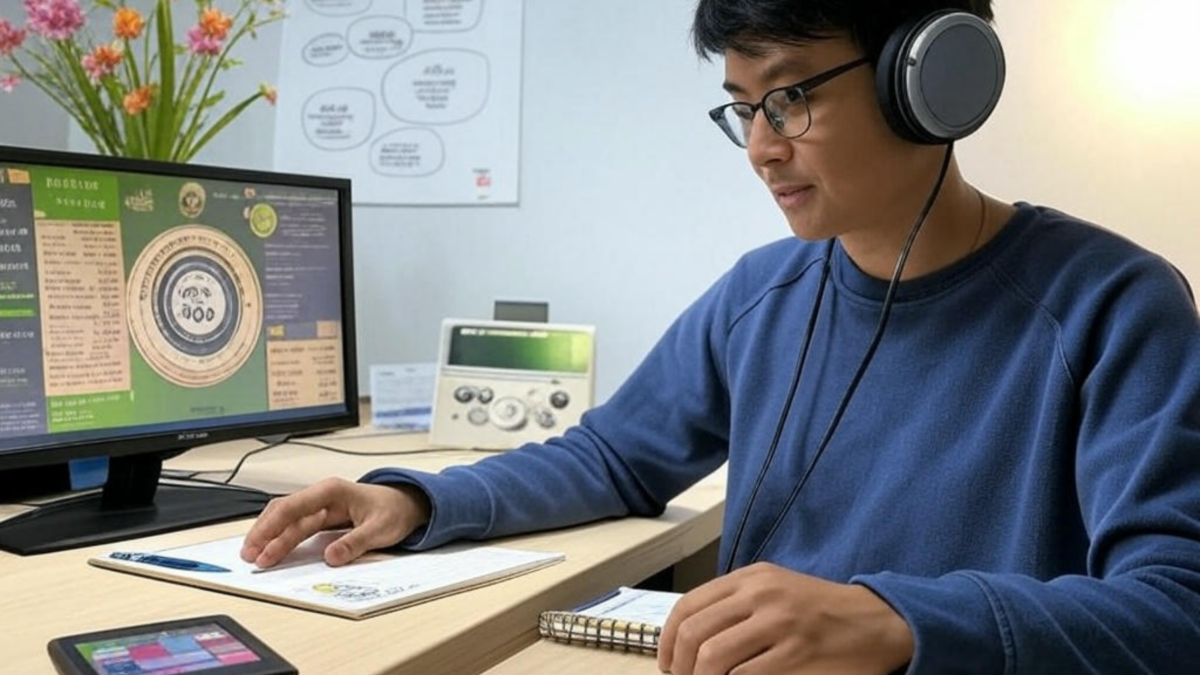How to Boost Productivity as an Autistic Adult: Simple Strategies That Work

Como Ser Destaque no Trabalho
02/01/2025
5 Organization Hacks for ADHD Minds to Stay on Track
23/03/2025I’ll never forget the day I missed a critical deadline—not because I didn’t care, but because my brain wouldn’t cooperate. I was sitting at my desk, surrounded by a sea of sticky notes, half-finished coffee cups, and a buzzing phone that wouldn’t stop pinging. The task? Write a 500-word report. Simple, right? But for me, an autistic adult juggling ADHD, Dyslexia, and Dyscalculia, it felt like climbing a mountain with no map. My mind raced between ideas, my eyes struggled to focus on the screen, and the numbers I needed to include? They danced around like a cruel game of hide-and-seek. I froze. Hours passed, and by the time I snapped out of it, the deadline had slipped away. That moment hit me hard—it wasn’t laziness; it was my neurodivergent brain screaming for a better way to work.
I’m Leonardo Fleming, and I was diagnosed as an adult with Autism, ADHD, Dyslexia, and Dyscalculia. For years, I thought productivity was a gift reserved for neurotypical people—those who could sit down, focus, and churn out work like clockwork. But I’ve learned something powerful since then: productivity isn’t about forcing yourself into someone else’s mold. It’s about finding strategies that fit you. As an autistic adult, I’ve spent years experimenting, failing, and tweaking until I discovered simple, practical ways to get things done—ways that respect my brain’s unique wiring. Today, I’m sharing those strategies with you because I believe every autistic adult deserves to feel capable, confident, and in control of their time.
Why Productivity Feels Hard for Autistic Adults
Before diving into the strategies, let’s talk about why productivity can feel like a battle. Autism often comes with intense focus—sometimes too intense. I can spend hours perfecting a single sentence, losing track of everything else. Then there’s sensory overload: a loud neighbor, a flickering light, or even the texture of my shirt can derail me for hours. Add ADHD into the mix, and my brain’s like a pinball machine—bouncing between ideas without landing anywhere useful. Dyslexia makes reading and writing a slog, and Dyscalculia turns numbers into a nightmare. Sound familiar? If it does, you’re not alone. Our challenges are real, but they don’t have to define us. With the right tools, we can turn our quirks into strengths.
Strategy 1: Break It Down—Really, Really Down
The first thing that changed my productivity game was learning to break tasks into tiny pieces. Big goals like “write an article” or “organize my desk” used to overwhelm me. My brain would shut down before I even started. Now, I slice them into micro-steps. For example, “write an article” becomes:
- Step 1: Open my laptop.
- Step 2: Pick a title.
- Step 3: Write one sentence.
- Step 4: Write one more.
It sounds silly, but it works. Each step feels doable, and checking them off gives me a dopamine hit that keeps me going. As an autistic adult, I thrive on structure, and this method turns chaos into a clear path. Try it: pick one task you’ve been avoiding and break it into five baby steps. Start with the first one—nothing more. You’ll be amazed at how momentum builds.
Strategy 2: Use Timers Like a Game
ADHD makes time slippery—I either hyperfocus for hours or lose track entirely. Enter timers, my secret weapon. I use the Pomodoro technique, but I tweak it for my autistic brain. Instead of the standard 25 minutes, I set a timer for 15 minutes of focused work, followed by a 5-minute break. Why shorter? Because my attention wanders fast, and 15 minutes feels less intimidating. During those 15 minutes, I’m all in—no phone, no distractions. Then I reward myself with a quick stretch or a sip of water.
Here’s the trick: treat it like a game. I tell myself, “Just 15 minutes—beat the clock!” It taps into my love for patterns and challenges. If 15 minutes feels too long, start with 10 or even 5. The point is to build consistency, not perfection. Over time, I’ve gone from dreading tasks to knocking them out in short, satisfying bursts.
Strategy 3: Create a Sensory-Safe Workspace
Sensory overload is my kryptonite. A noisy room or a cluttered desk can send me into a spiral where nothing gets done. So, I’ve learned to design a workspace that calms my autistic senses. For me, that means a quiet corner with noise-canceling headphones, a soft lamp (no harsh fluorescents), and a clean desk with only the essentials. I keep a fidget toy nearby—something simple like a stress ball—to channel restless energy without breaking focus.
Think about your sensory triggers. Do loud sounds throw you off? Try earplugs. Does visual clutter stress you out? Clear your space down to the basics. This isn’t about luxury; it’s about survival. A calm environment lets your brain focus on the task, not the chaos around it.
Strategy 4: Lean Into Your Strengths
For years, I fought my autistic traits, thinking they held me back. Then I flipped the script: what if they’re my superpowers? I’m detail-oriented to a fault—great for editing or planning. I love routines, so I’ve built a daily schedule that keeps me on track. Even my ADHD impulsivity has a upside: it sparks creative ideas when I least expect it.
Take a moment to list your strengths. Are you a visual thinker? Use mind maps to organize tasks. Do you hyperfocus on things you love? Schedule your hardest work during peak interest times. Productivity isn’t about fixing yourself—it’s about working with yourself. When I started embracing my quirks, I stopped feeling broken and started getting stuff done.
Strategy 5: Forgive Yourself and Reset
Here’s the hardest lesson I’ve learned: some days, productivity just won’t happen. Maybe I’m overstimulated, or Dyslexia makes words swim, or Dyscalculia turns a simple budget into a meltdown. In the past, I’d beat myself up, thinking I’d failed. Now, I give myself permission to reset. If a task flops, I step away—maybe take a walk or listen to music—then try again later. No guilt, no shame.
As autistic adults, we’re often harder on ourselves than anyone else. But self-compassion is a productivity tool. When I forgive myself, I save energy for the next attempt instead of wasting it on regret. Next time you stumble, say out loud, “It’s okay—I’ll try again.” It’s simple, but it’s powerful.
Putting It All Together
These strategies aren’t magic bullets, but they’ve transformed my life. Breaking tasks down keeps me from freezing. Timers turn work into a challenge I can win. A sensory-safe space protects my focus. Leaning into my strengths makes me feel capable, not crippled. And forgiving myself keeps me moving forward, even on tough days. Together, they’ve helped me write books, give talks, and build a career—all while navigating a brain that doesn’t play by neurotypical rules.
You can start small. Pick one strategy—maybe the timer trick—and test it for a week. Adjust it until it fits you. Productivity isn’t a one-size-fits-all deal, especially for autistic adults. It’s a personal puzzle, and you’re the one holding the pieces. With patience and practice, you’ll find your rhythm.
Conclusion
I’ve been where you are—overwhelmed, stuck, and wondering if I’d ever get a grip on my time. But I’ve learned that productivity isn’t about being perfect; it’s about being persistent. These strategies have carried me through chaos to clarity, and I hope they do the same for you. Keep experimenting, keep adapting, and most importantly, keep believing in yourself. You’ve got this.
Leonardo Fleming is a Best-Selling Author, Learning and Assessment Specialist, and the top-voted speaker at The Best Speaker Brasil 2024. Diagnosed as an adult with Autism, ADHD, Dyslexia, and Dyscalculia, he’s passionate about helping neurodivergent individuals unlock their potential through practical, compassionate strategies.

Leonardo Fleming – Palestrante nº 1 do Brasil pelo voto popular em 2024 no The Best Speaker Brasil; Escritor Bestseller da Amazon; 2º Sargento Reformado da Polícia Militar; Com vasta experiência em superar dificuldades, desenvolveu métodos de aprendizagens, ele inspira e capacita pessoas através de suas histórias reais e ensinamentos. Missão é transformar desafios em pontos fortes e promover a evolução pessoal e profissional. Saiba mais em www.leonardofleming.com. WhatsApp (68) 9 9943 6162.




